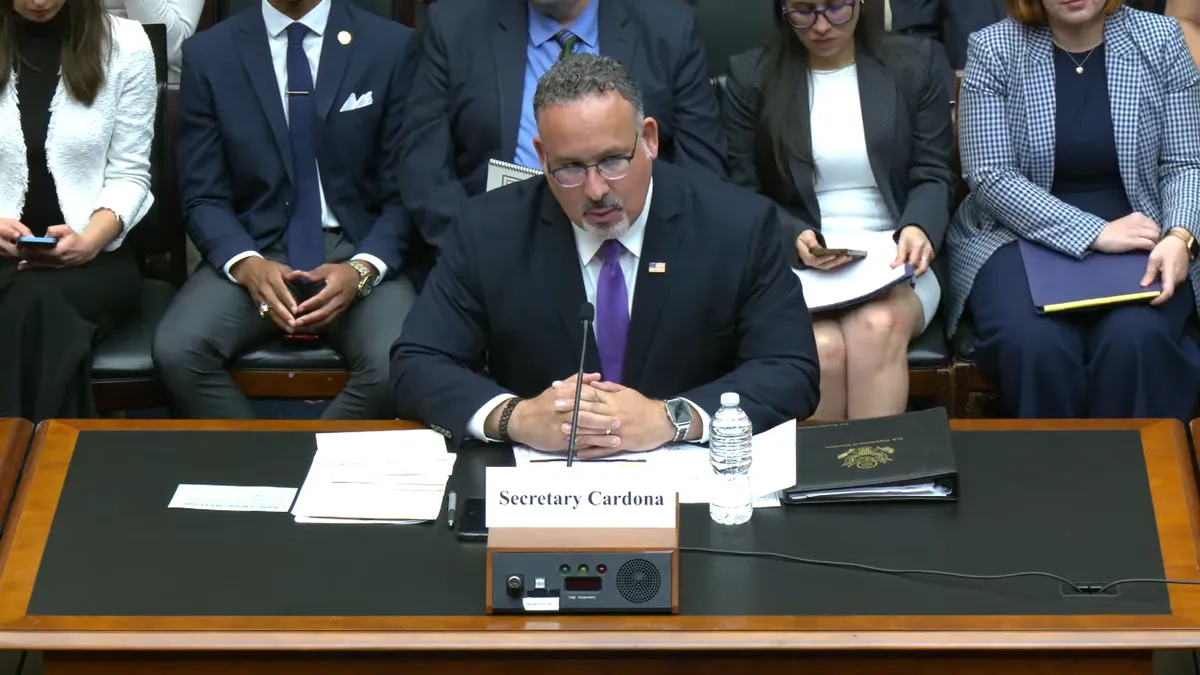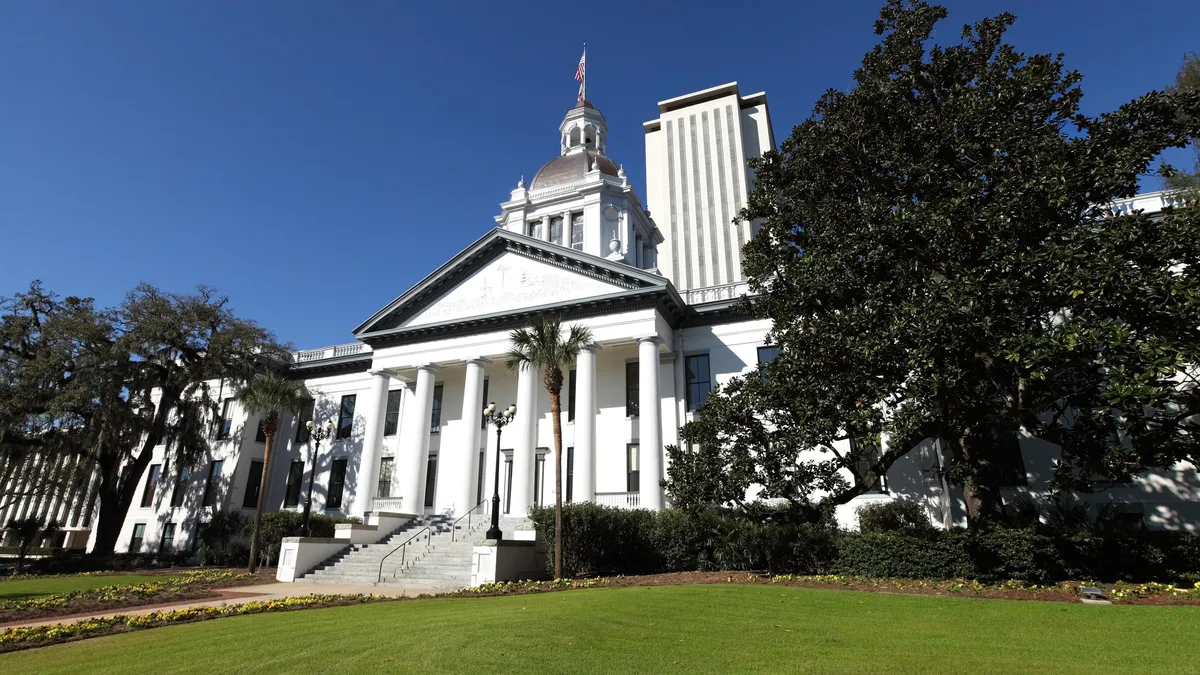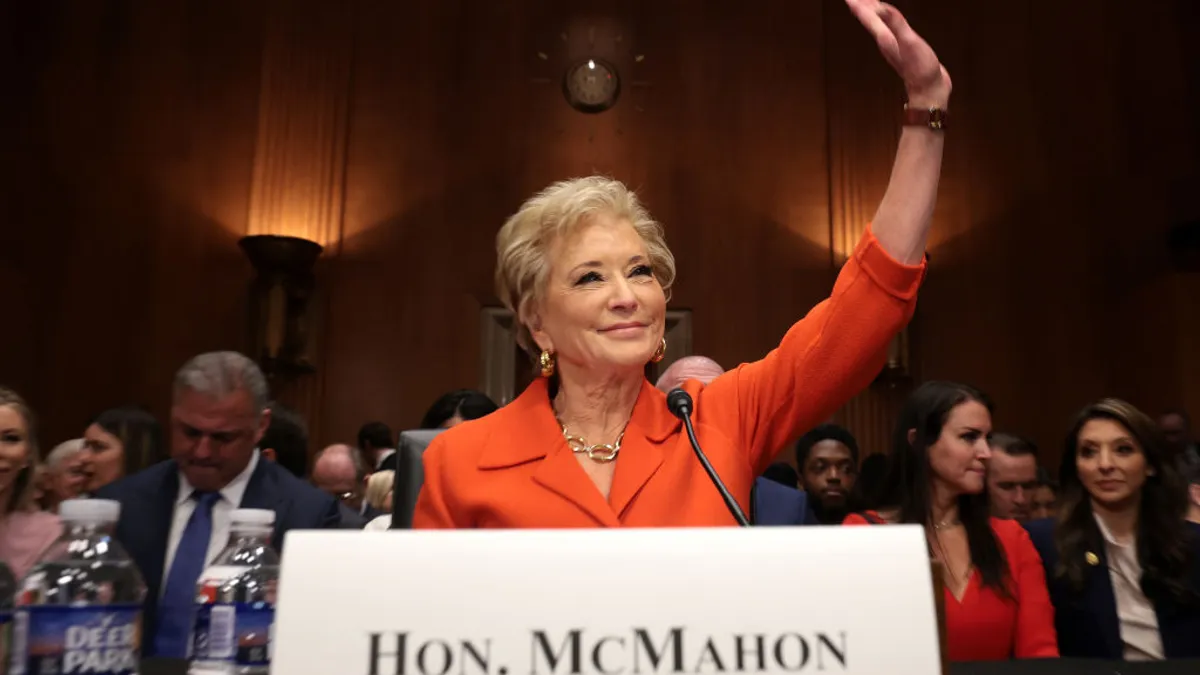House Republicans tore into Education Secretary Miguel Cardona during a fiery committee hearing Tuesday, criticizing signature policies like the White House’s plans to rework Title IX regulations and forgive mass amounts of student loan debt.
Meanwhile, Democrats on the House Committee on Education and the Workforce praised proposals to retool the federal financial aid system, such as a proposal to reduce how much borrowers would pay back each month under income-driven student loan programs.
The Biden administration has made major policy plays in higher education, starting the regulatory process to reshape everything from online learning to accreditation and Title IX, the law banning sex-based discrimination in federally funded schools.
The White House’s regulatory agenda is ambitious, particularly around efforts involving the Office of Federal Student Aid, which handles the federal government’s roughly $1.6 trillion student loan portfolio and is helping to restart monthly student loan repayments.
The Trump administration enacted a payment freeze in 2020 because of the pandemic, but conservatives have grown frustrated as President Joe Biden has continually extended it, criticism that House Republicans repeated during Tuesday’s hours-long committee hearing.
Committee chair Virginia Foxx, a North Carolina Republican, asked Cardona to pledge to not draw out the freeze further. It is due to end two months after the U.S. Supreme Court rules on Biden’s mass loan forgiveness program, or 60 days after the end of June, whichever comes first.
Cardona did not firmly commit to no further freezes. Foxx also wanted to know how the Education Department has advised loan servicers to prepare for payments resuming.
The department has been regularly communicating with them and with borrowers, the secretary said.
“Part of the success of the repayment plan will be based on how our borrowers receive information in a timely way, in a clear way, and we’ve engaged with our servicers to ensure that’s the expectation,” Cardona said.
At times, the committee hearing turned combative, with a few Republicans taking aim at the Biden administration’s regulatory proposals on Title IX, which the federal government has used over the last decade or so to mitigate sexual assaults in colleges.
The Biden administration has drafted two Title IX regulations, one that would broaden the sexual violence investigations colleges must undertake, and another that would prevent blanket bans on transgender athletes participating in sports aligned with their gender identity.
Education Department officials have said they will publish the final version of the rules this month.
Committee Republicans accused the Biden administration of allowing transgender women to shower and change with other women athletes, claiming without evidence that letting them do so would endanger other students.
Rep. Erin Houchin, an Indiana Republican, asked whether women athletes "being forced" to change with Lia Thomas, a well-known trans athlete, constituted sexual harassment. During her remarks, she misgendered Thomas, who swam on the women's team at the University of Pennsylvania.
Cardona asked whether she would like to discuss policy merits instead. He gave this answer to other lawmakers who posed transphobic questions.
Republicans also accused the department of being unwilling to provide requested information.
Rep. Lisa McClain, a Michigan Republican, grew exasperated with Cardona. After he would not give a firm date to provide McClain department data on certain loan discharges, she asked him what the color of his suit was.
“I’m trying to figure out whether we can answer a question,” McClain said.
Cardona later told Foxx the department would comply with information requests.
Glimmers of bipartisanship
Some exchanges were more substantive. Several Republicans questioned how the Education Department is addressing Section 117, part of federal law that requires colleges to report foreign gifts and contracts worth $250,000 or more in a calendar year.
The Trump administration prioritized enforcement of this law, and Cardona said the agency has processed and made public 34,000 reports from colleges in the last few years.
And Rep. Mark Takano, a California Democrat, asked Cardona his thoughts on regulating online program managers.
OPMs facilitate distance learning programs for colleges, but have been accused of driving up the cost of online education. Takano was among a few House representatives that recently urged the Education Department to rescind 2011 guidance that allowed OPMs to recruit students for colleges, so long as they are provided as part of a larger bundle of services.
The Education Department is reviewing this policy, potentially threatening the business models of many OPMs.
Glimmers of bipartisanship also emerged around lawmakers' desire to open federal Pell Grants, a primary form of financial aid, to students enrolled in short-term academic programs. Republicans and Democrats alike have introduced bills that would allow this.
Consumer protection advocates have expressed fears that loosening these rules would cause students to waste their financial aid on programs with poor outcomes.























